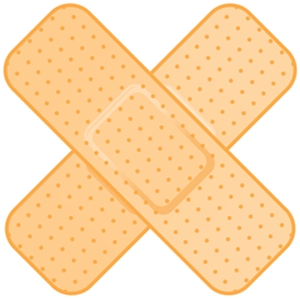
People love spending time in the outdoors to enjoy the sunshine and fresh air, but experts warn that this also increases the risk of cuts, scrapes and puncture wounds.
In the event of these types of injuries, doctors from Wake Forest Baptist Medical Center advised the first step to take is to assess if the wound is serious. Taking immediate action can help injuries heal faster and prevent infection. They noted, however, most often these injuries will not require a trip to the emergency department.
"There's definitely an increase in these types of injuries at this time of year," Dr James Guerrini, medical director of Wake Forest Baptist Health Urgent Care, said in a medical center news release. "Fortunately, most of them are minor and can be treated effectively at home."
Simple first-aid is often enough to treat cuts and scrapes from outdoor activities. When treating a minor wound, the American College of Emergency Physicians offers the following tips:
- Thoroughly wash your hands with soap and warm water or use an antibacterial cleanser.
- Apply direct pressure with a clean cloth, paper towel or piece of gauze to the injured area to stop the bleeding.
- Clean the wound with cool water and mild soap, and gently dry the area.
- Apply an antibiotic ointment to the wound to reduce the risk for infection.
- Cover the wound with a sterile bandage.
"Cuts and scrapes are common, so everybody should know how to deal with them," Guerrini added. "Proper treatment administered quickly can prevent infection, promote healing and otherwise keep something minor from becoming something major."
In some cases, however, emergency medical attention is required. The US National Institutes of Health advised seeking urgent care for the following:
- Wounds that are very large or bleeding excessively.
- Injuries that are on the face or near a bone.
- Injuries that have caused people to lose feeling or function in the affected area.
- Injuries caused by a human or animal bite.
- Wounds caused by a rusty object.
- Wounds with objects or debris stuck inside.
A doctor should also be consulted about wounds that do not appear to be healing after 48 hours or injuries that are red, swollen, pus-filled or show other signs of infection.
The experts noted that getting the tetanus vaccine can help protect against the serious bacteria-borne illness that infects the body through cuts and puncture wounds. They pointed out that protection against tetanus doesn't last a lifetime and adults should get a tetanus booster shot every 10 years.
More information
The American Academy of Family Physicians provides more first-aid
tips for cuts and scrapes.




 Publications
Publications
 Partners
Partners











